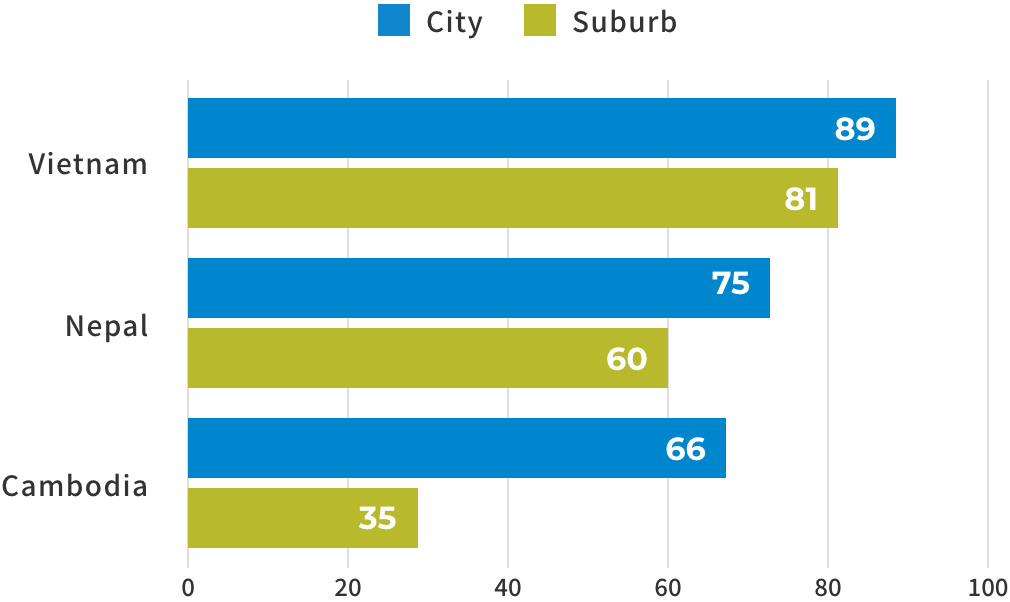PROBLEM
The Educational Gap Is Widening
Regardless of country, ethnicity, or culture, basic education is a right to which all children are entitled. Lack of access to education during childhood affects every aspect of later life, including job opportunities, potential income, and social standing. Therefore, those who do not have access to education may find that their children and grandchildren also do not have adequate educational opportunities, perpetuating a cycle of poverty for generations.
In recent years, the number of children enrolled in elementary school has increased in developing countries, however, 265 million children still do not attend elementary school.
Children who cannot complete elementary school
Elementary school completion rate (%)

Comparison of elementary school completion rates in Cambodia, Nepal, Vietnam and Japan (Source: UNESCO (2016))
In Vietnam, close to 100% of children are able to complete elementary school. In Cambodia and Nepal, on the other hand, the percentage remains at about 70-80%.
There is a huge disparity between urban and rural areas.
Even within a country, there is a significant disparity in educational opportunities and quality between urban and rural areas. The number of children who can attend junior high and high school is disproportionately high in urban areas, while many children in rural areas do not even graduate from elementary school before entering the workforce.
Junior high school completion rate (%)

Comparison of junior high school completion rates in Vietnam, Nepal, and Cambodia (Source: UNESCO (2016))
The following factors contribute to children's lack of access to adequate education.
- No schools nearby
- Lack of teaching materials and teaching equipment
- Lack of skilled teachers
- Household financial situations prioritizing children's labor
- Low parental understanding of the importance of education to their children
etc.
FIDR's Initiatives
In the mountainous areas of Nepal, many public schools have deteriorating school buildings and lack teaching equipment and materials. To address this, FIDR has been engaged in repairing school facilities and making desks, chairs, and other equipment so that children can learn in a safe and comfortable environment. Residents are also actively participating in these efforts.
Another challenge is that classes often involve only one-way transmission of knowledge. We aim to enhance classroom instruction and extracurricular activities, encouraging children to learn actively and happily.

Projects in Progress
Past Project
Issues We Work on
- https://www.fidr.or.jp/english/issue/health.html

Health and Hygiene
- https://www.fidr.or.jp/english/issue/medical-care.html

Medical Care
- Nutrition(issue/nutrition.html)

Nutrition
- https://www.fidr.or.jp/english/issue/agriculture.html

Agriculture
- https://www.fidr.or.jp/english/issue/education.html

Education
- Industrial development in Southeast Asia and South Asia.(issue/industry.html)

Industrial Development
DONATION
Your generous donation now will have impacts
on children and communities in our fields.



















